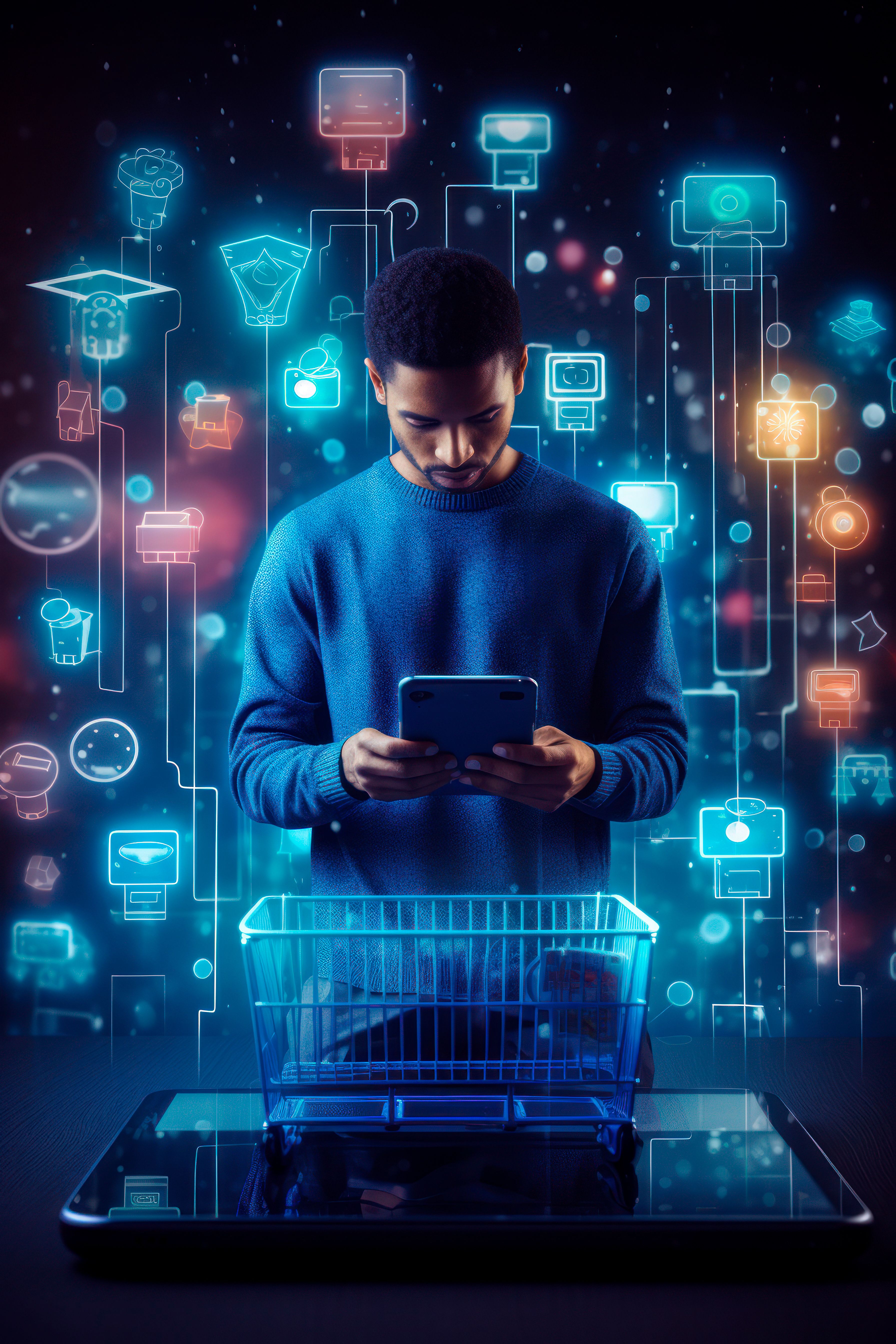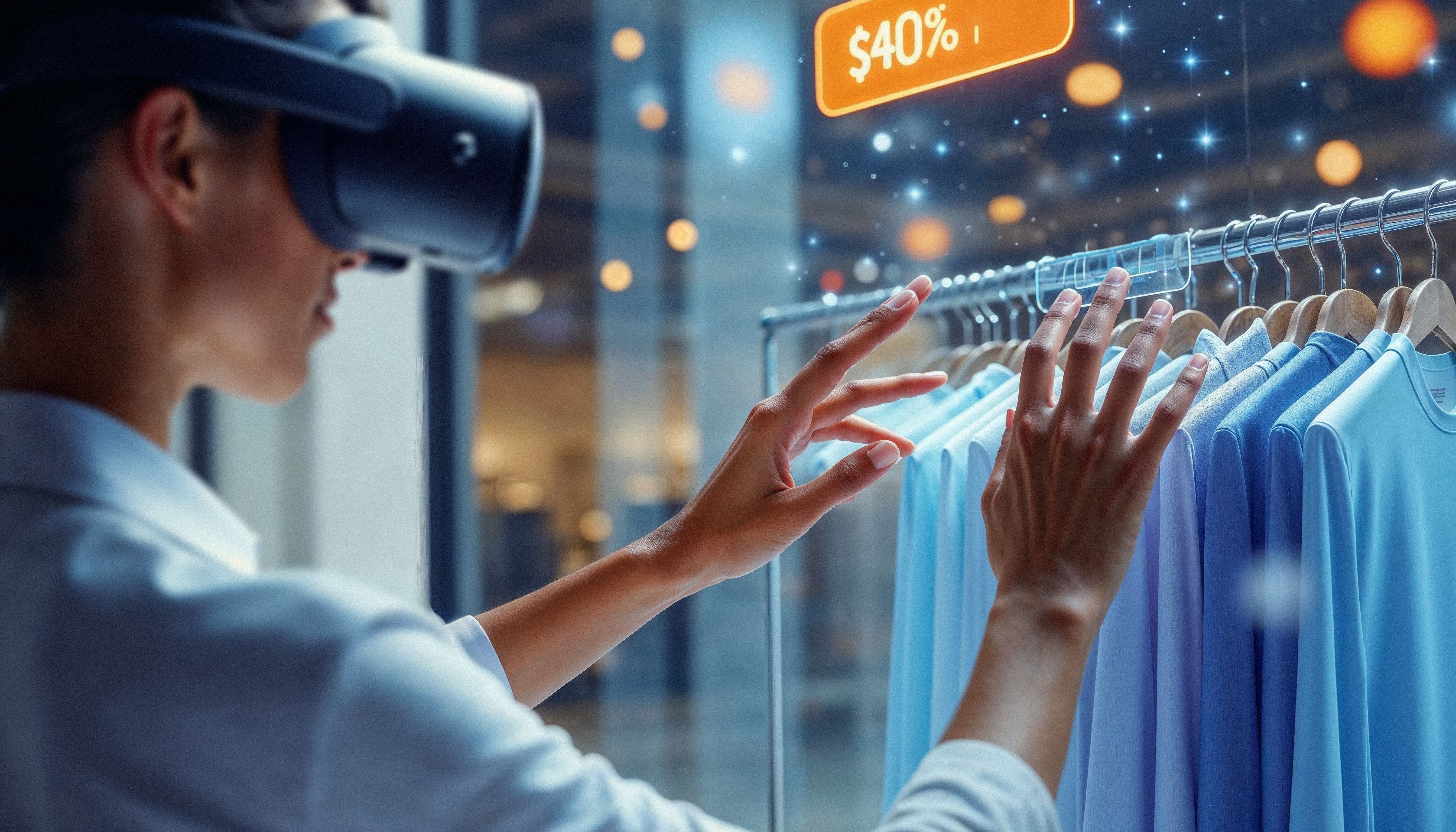AI Fashion Brands Transforming Luxury Shopping: 2026 Edition
TL;DR
Trends are moving faster than ever and AI is keeping up. In 2026, AI fashion brands like H&M, PUMA, Nike, Zara, Levi’s, and Ralph Lauren use generative AI to design smarter, forecast trends, and offer tailored recommendations. Shoppers can explore styles effortlessly, make confident choices, and enjoy fashion that always feels fresh and personal.
Fashion moves faster than ever, but finding your personal style online still feels overwhelming. Endless scrolling, trend overload, and one-size-fits-all recommendations often make shopping more confusing than inspiring. High-end brands are now leveraging generative AI to reimagine design, marketing, and consumer interaction, transforming traditional approaches into futuristic experiences—and AI fashion brands are at the center of this shift.
By using generative AI to understand taste, behaviour, and changing style preferences, AI fashion brands are reshaping how fashion is designed, discovered, and experienced in 2026. Instead of pushing trends, they surface what fits you making online fashion feel smarter, more relevant, and easier to shop.
How AI Fashion Brands Help Shoppers Keep Up in 2026?

1. Faster Discovery in a Faster Fashion Cycle
In 2026, waiting to “find your style” isn’t realistic. AI fashion brands cut through noise by instantly surfacing looks that match your preferences, saving time while keeping discovery exciting in a constantly shifting trend landscape.
2. Personal Style That Adapts in Real Time
As tastes change with mood, season, and lifestyle, AI fashion brands evolve alongside shoppers. Instead of locking you into past choices, they adjust recommendations dynamically — reflecting who you are right now, not last year.
3. More Confident Shopping Decisions
With better alignment between what you like and what you see, AI fashion brands help reduce wrong buys. Shoppers feel more confident choosing pieces that fit their style, leading to fewer returns and more intentional fashion choices.
4. Always Connected to What’s Culturally Relevant
From viral aesthetics to global fashion moments, AI fashion brands stay tuned into what’s happening in real time. Shoppers don’t have to chase trends across platforms — discovery comes to them, already curated.
5. Seamless Inspiration-to-Action Journeys
In 2026, shopping is expected to be instant. AI fashion brands remove friction between inspiration and purchase, turning moments of interest into effortless action without disrupting the browsing experience.
How AI Fashion Brands Are Leveraging Generative AI: Top 6 Use Cases

High-end brands are using generative AI in a variety of ways that directly impact both the creative process and customer engagement. Here are some common use cases:
- Content Creation: Generative AI produces marketing materials, ad copy, and even social media posts, ensuring that campaigns are fresh, personalized, and on-trend.
- Design and Prototyping: AI models generate new designs for clothing and accessories. Designers can experiment with colors, patterns, and styles rapidly, speeding up the creative process.
- Customer Personalization: AI-driven recommendations tailor product suggestions based on individual shopping habits and preferences, making the digital shopping experience more engaging and efficient.
- Inventory Management: Predictive analytics powered by generative AI helps brands like Zara optimize inventory levels by forecasting trends and customer demand more accurately.
- Interactive Marketing: Digital twins and AI-generated models create immersive, innovative marketing campaigns that capture the audience’s attention and drive brand engagement.
- Fan and Community Engagement: As seen with PUMA’s AI kit design tool, brands are involving their customers in the creative process, transforming fans into co-creators and deepening brand loyalty.
Top AI Fashion Brands in 2026
 1. American Eagle Outfitters
1. American Eagle Outfitters
American Eagle Outfitters has integrated AI-based tools to optimize inventory management and replenishment. This initiative has led to improved stock accuracy and leaner inventories. Additionally, the brand has deployed AI-powered robots in distribution centers to enhance order fulfillment processes.
2. Carhartt
Carhartt utilizes AI for merchandising and marketing decisions, enabling better product recommendations and customer engagement. The company has also developed an AI-driven sales prospecting engine to optimize market strategies.
3. U.S. Polo Assn.
In partnership with Adeptmind, U.S. Polo Assn. has integrated AI-driven search and discovery solutions on their e-commerce platform, enhancing the online shopping experience for customers.
4. Diane von Furstenberg
Diane von Furstenberg has adopted AI-powered personalization technology to provide tailored e-commerce experiences, resulting in increased revenue and conversion rates.
5. Levi's
Levi's is blending its rich heritage with modern AI capabilities. By using generative AI to develop denim prototypes, the brand can rapidly test and refine styles before going into production. This helps Levi's stay agile in responding to evolving customer preferences while preserving its iconic identity.
6. PUMA
With its collaboration with Manchester City, PUMA launched an AI-powered kit design platform that lets fans design the official 2026/27 Third kit. This crowd-sourced creativity model is powered by DEEPOBJECTS and marks a new frontier in customer-brand collaboration.
7. H&M
H&M is blending fashion and tech with AI-generated digital twins—virtual models that cut down production time and costs. But it doesn’t stop there. H&M also uses AI to forecast trends, manage inventory, and reduce overproduction. This smart integration supports faster design cycles and promotes sustainability, showing how AI can future-proof fast fashion.
Glance: How to Discover and Shop AI Fashion Brands Today
In 2026, discovering fashion isn’t about endless scrolling or searching for something you think you want. Shoppers want experiences that feel personal, timely, and effortless. AI fashion brands are reshaping this experience, and Glance brings it to life by connecting inspiration with action in real time.
With Glance, your personal style evolves with you. An AI Twin remembers your preferences, moods, and context, helping you discover outfits and trends that are relevant right now. Every interaction teaches the system more about what fits your taste — making each fashion moment smarter and more meaningful.
Shoppers benefit in several ways:
- Effortless Discovery – Styles and trends find you when you’re most receptive, replacing endless searching.
- Inspiration → Action – Favorite looks or ideas can be explored, compared, and purchased seamlessly.
- Personalized Style Memory – Your AI Twin adapts over time, reflecting your evolving tastes and moods.
- Top Brands, One Place – Access curated selections from U.S. Polo Assn., American Eagle Outfitters, Calvin Klein, and more without jumping between platforms.
- Context-Aware Recommendations – Suggestions are tailored to your moment, whether shopping on mobile, desktop, or smart TV.
In short, Glance makes AI fashion brands tangible for shoppers. It’s not about technology or tools — it’s about experiencing fashion that feels alive, personal, and in sync with your life. Every style suggestion, every trend surfaced, is designed to turn fleeting inspiration into a confident, effortless choice.
Conclusion
AI fashion brands are reshaping the way we discover, explore, and shop for style in 2026. From personalized recommendations to real-time trend discovery, the experience is faster, smarter, and more tailored than ever before. Shoppers now interact with fashion in ways that feel intuitive, inspiring, and effortless.
Brands like H&M, PUMA, Nike, Zara, Levi’s, Ralph Lauren, and Under Armour are leading the charge, integrating generative AI into design, trend curation, and customer engagement to make fashion feel more personal and relevant. Platforms like Glance make this transformation tangible. By turning moments of inspiration into action, learning your evolving taste through your AI Twin, and surfacing the styles you love, Glance shows how AI fashion brands can fit seamlessly into everyday life.
Whether you’re exploring new trends or refining your personal style, the future of fashion is dynamic, personal, and ready to be glanced at and shopped.
FAQs Related to AI Fashion Brands
- Which fashion brand uses AI?
Many leading AI fashion brands, including Nike, Zara, Ralph Lauren, and Levi’s, leverage AI for smarter trend forecasting, personalized recommendations, and enhanced online shopping experiences. These brands use generative AI to anticipate style trends and create more relevant fashion suggestions for shoppers in real time.
2. Is Zara using AI?
Yes, Zara uses AI for demand forecasting, trend analysis, and supply chain optimization. By predicting what shoppers want, Zara ensures faster delivery of trends, reduces overproduction, and provides a more personalized fashion experience.
3. What is the best AI for fashion?
The best AI solutions for AI fashion brands include tools like Google Cloud AI, ChatGPT, and Fashwell, which help with personalization, style recommendations, image recognition, and trend discovery. Platforms like Glance bring these capabilities directly to shoppers, connecting them with top fashion brands effortlessly.
4. Does H&M use AI?
Yes, H&M uses AI to analyze customer behavior, optimize pricing, manage inventory, and deliver personalized product suggestions across both online and offline channels. This ensures shoppers receive timely and relevant style recommendations.
5. How many fashion brands use AI?
Hundreds of AI fashion brands globally, from fast fashion to luxury labels, use AI to enhance design, improve personalization, streamline inventory, and make shopping more seamless. Platforms like Glance bring these innovations to shoppers, turning inspiration into immediate action.




